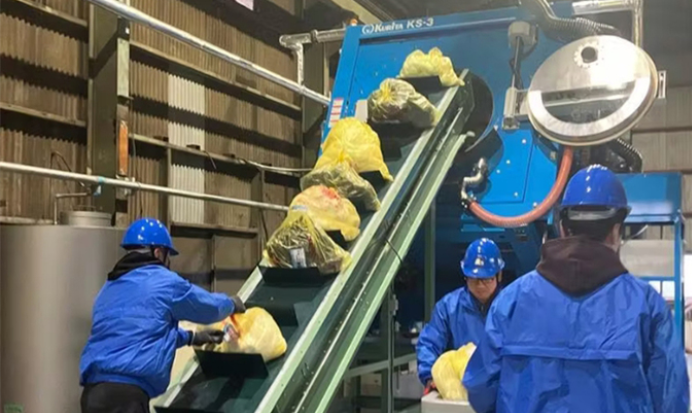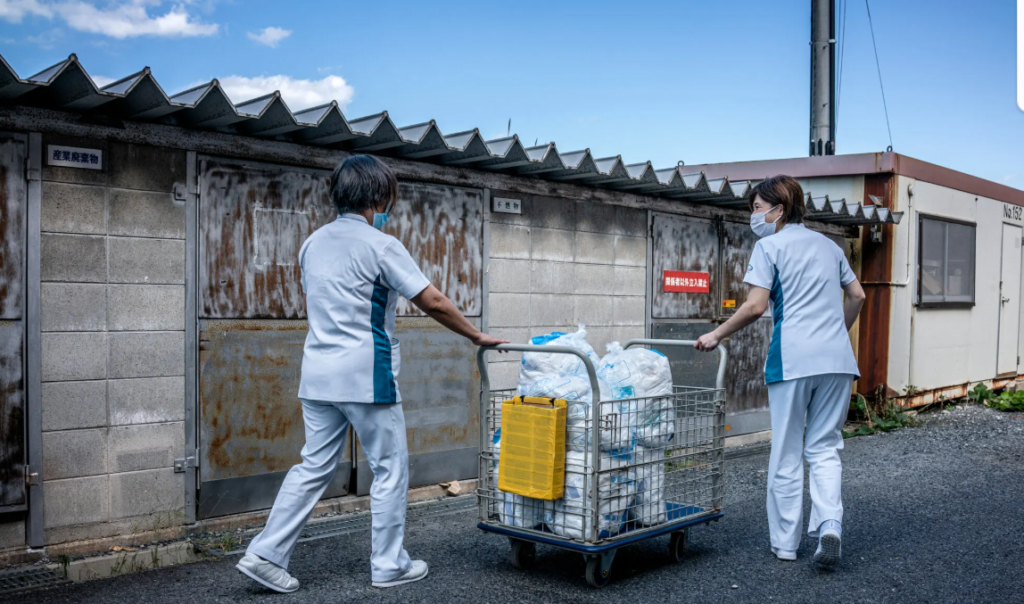
BEaR, which was jointly established by recycling companies in Nagoya, Japan, started a business to recycle paper diapers this year. Recently, it has started experiments to confirm the efficiency of the paper diaper recycling process. The move comes as the number of children is decreasing due to a severe low birth rate, but the number of elderly people using diapers is increasing due to the aging population. According to the Nihon Keizai Shimbun on the 22nd, Nagoya City started a diaper recycling business for the first time in Japan’s metropolitan area. Founded jointly by 12 companies, including waste recovery companies and industrial waste recycling companies, Bear operates the machine about six times a day to process 1.5 tons of diapers. After separating the diaper materials such as pulp and plastic, the plastic is used again as a building material such as cement raw materials. Currently, most of the diapers that are incinerated contain moisture, making it difficult to burn them and having to add fuel, causing problems such as rising costs and environmental pollution. Nikkei said, “We share the waste import method and recycling know-how of each participating company,” and added, “We plan to increase the number of treatment facilities to five in the future and allow about 20 to 30 tons of treatment per day.” If it goes as planned, it will be possible to recycle diapers from most nurseries and nursing facilities in Nagoya.

This is due to the increasing number of elderly people using relatively large diapers. According to Japan’s Ministry of Environment, diaper waste accounted for about 5% of the total waste, but it is expected to increase to 7% by 2030. At this rate, the annual production of diapers amounts to about 10 billion units. Nagoya City is the first in the metropolitan area, but the same attempts are being made in Furano City, Hokkaido and other cities. Nikkei said, “Although diapers cannot be reduced unlike container wrappers and plastic bags, they are becoming easier to recover as they are used in nursing homes. It is important to broaden the perception that diapers are subject to recycling and to spread the metropolitan model to small and medium-sized cities.”
SALLY LEE
US ASIA JOURNAL



